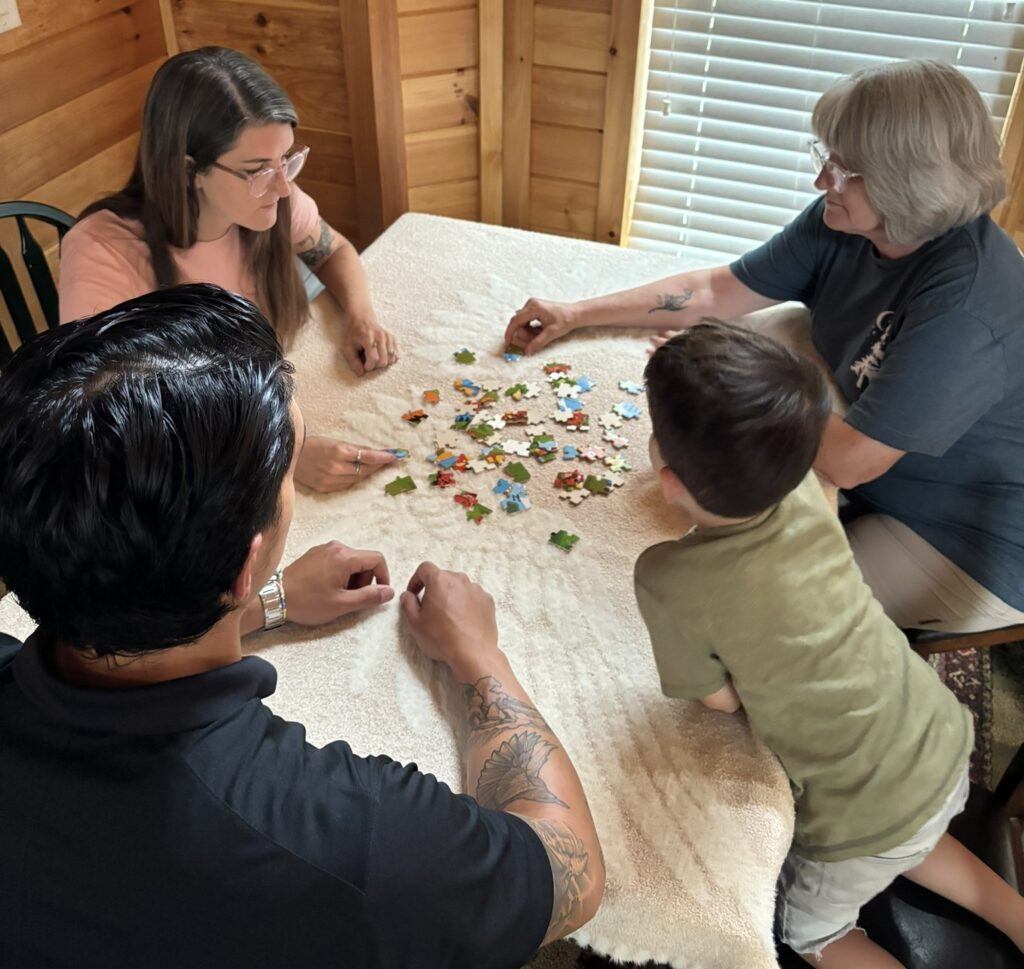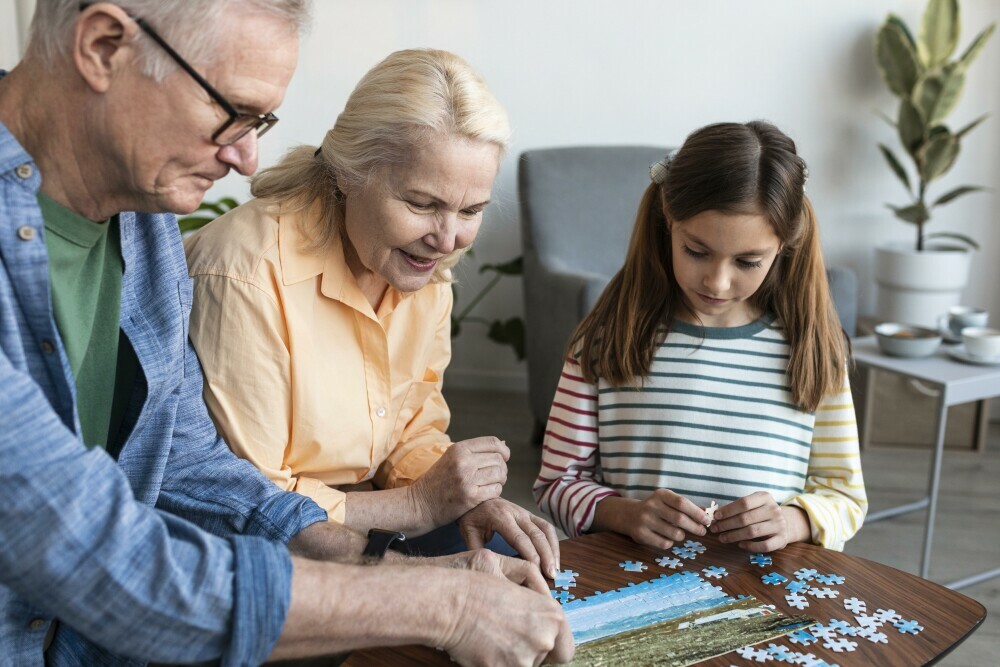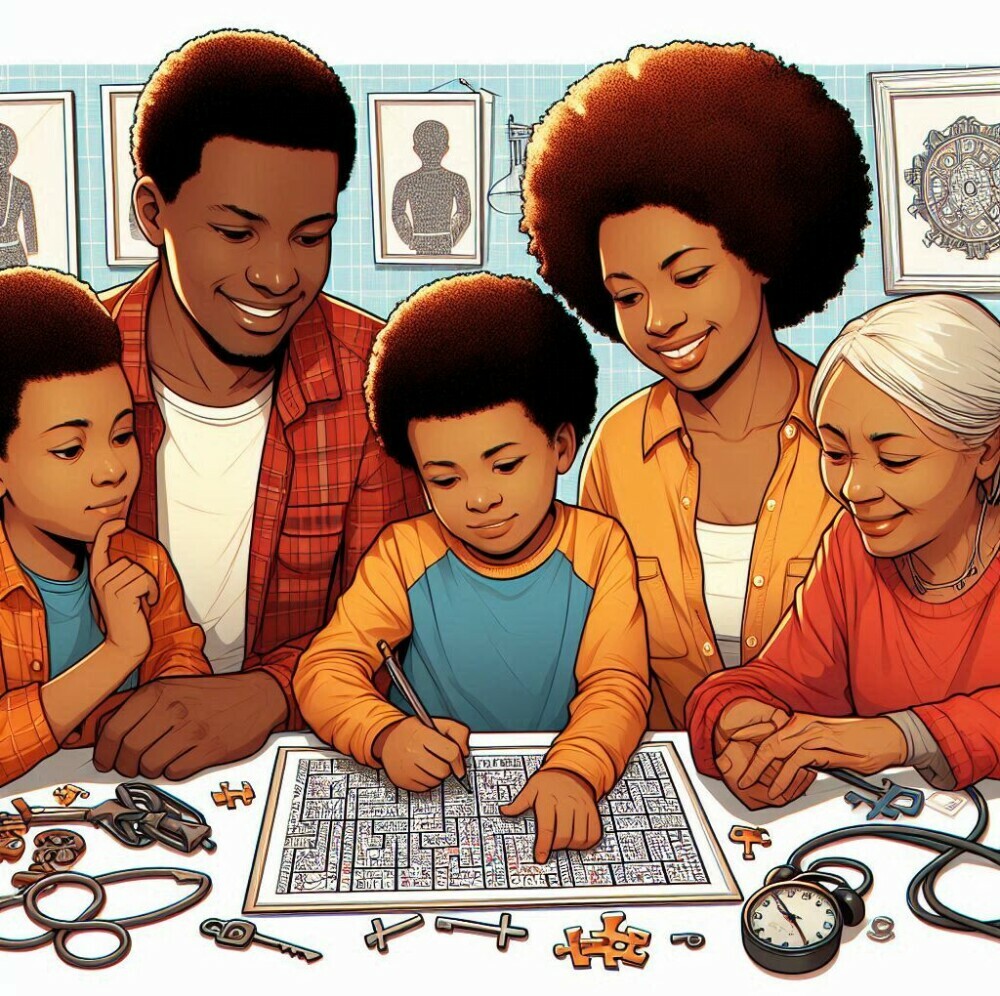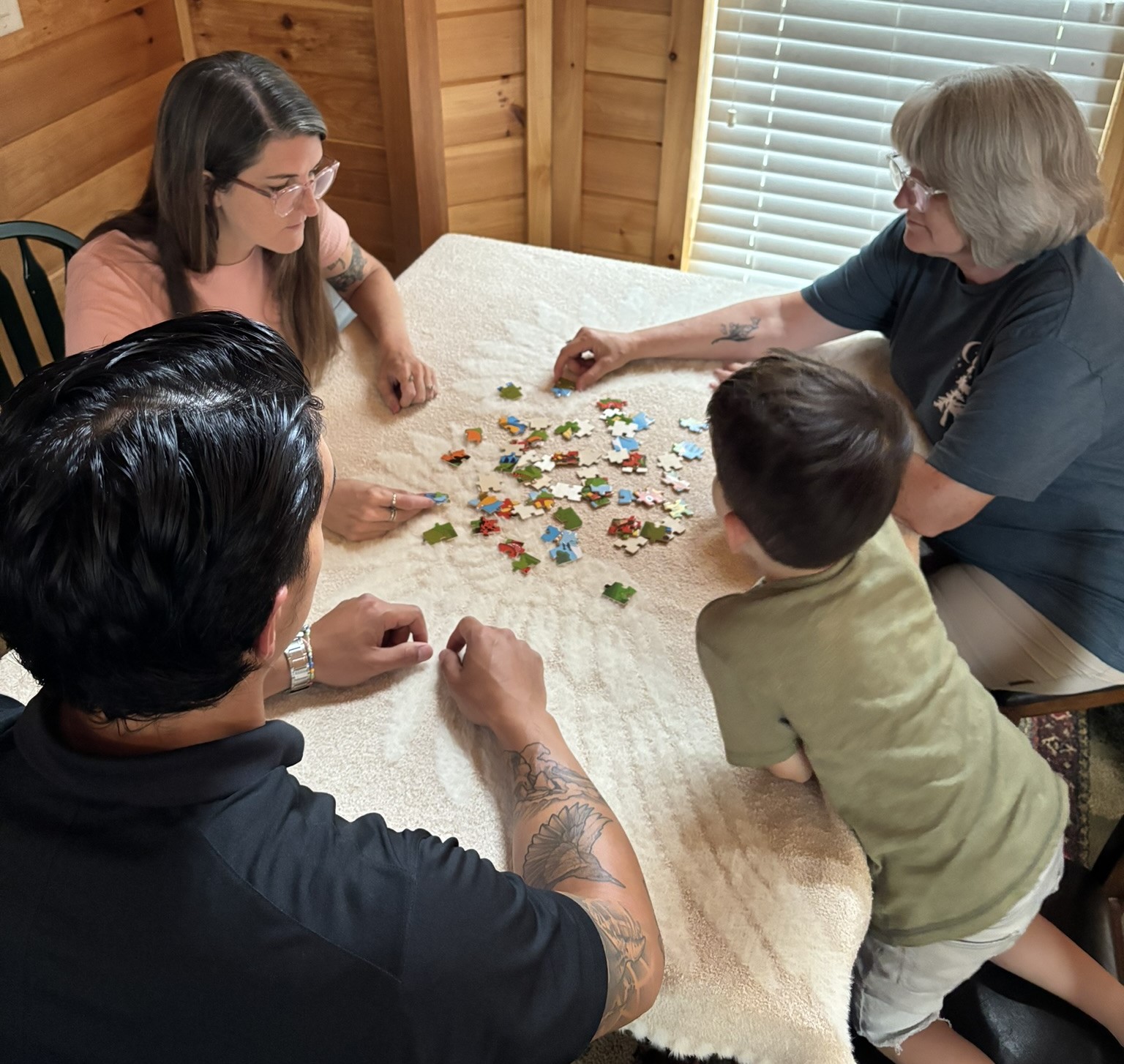
Family nights have always been a cherished tradition in households worldwide. They offer a break from the daily grind and provide a great opportunity for family members to bond and create lasting memories. One timeless and increasingly popular activity for these evenings is solving puzzles. From classic jigsaws to escape room puzzles, there’s something about solving a puzzle together that brings people closer. During the quarantines and lockdowns of 2020, families needed to find activities they could do within the home that offered a variety of entertainment. The revival of interest in puzzles as a family activity was a great fit; they are a perfect blend of fun, challenge, and educational value.
Understanding the Importance of Family Nights
In our fast-paced and digital world, finding quality time to spend with loved ones can be a challenge. How many families are finding themselves spending their free time with each one of them on their own electronic devices, engaged in their own activity when they could be enjoying their time together? There may be a time for interacting on social media or watching cute cat videos, but that doesn’t need to be the bulk of the time you have to spend together at home. Family nights offer a dedicated time for connection, communication, and collaboration. They help strengthen family bonds, foster open communication, and build a sense of unity. Engaging in activities like puzzles enhances these benefits by encouraging teamwork and providing a shared goal. Puzzles require patience, strategy, and a bit of creative thinking, all of which are great skills to cultivate together as a family.
 Image by freepik
Image by freepik
Highlighting Different Types of Puzzles for Family Night
Puzzles come in many shapes and forms, catering to various interests and age groups. Here are some popular types of puzzles that can make your family night enjoyable and memorable:
- Jigsaw Puzzles: These are the most traditional type of puzzles, where pieces are assembled to form a complete picture. They come in various sizes and difficulty levels, making them suitable for all ages. The process of finding and fitting pieces together can be both relaxing and rewarding, providing a great way for families to collaborate and bond. Jigsaw puzzles range from simple designs for young children to complex images with thousands of pieces for experienced puzzlers. Check out this article for Jigsaw Puzzle Tips.
- Crossword Puzzles: Ideal for families who enjoy word games, crosswords challenge vocabulary and problem-solving skills. They typically consist of a grid of white and black squares, with clues provided to help fill in the words. Solving a crossword puzzle together can foster teamwork and communication, as family members discuss potential answers and share their knowledge. Crosswords come in varying levels of difficulty, from easy puzzles suitable for beginners to challenging ones that can stump even seasoned solvers. Learn how to Solve Crossword Puzzles Quickly.
- 3D Puzzles: These puzzles add an extra dimension of fun by creating three-dimensional models, such as famous landmarks or intricate structures. Unlike traditional puzzles, 3D puzzles require spatial reasoning and dexterity, as pieces must be assembled in multiple planes. Completing a 3D puzzle can be a rewarding and educational experience, especially for children who can learn about the structures they are building. They also make great display pieces once completed, serving as a lasting keepsake of family night. Take a look here for the Best 3D Puzzles.
- Brain Teasers: These include riddles and logic puzzles that require critical thinking and can be a hit with older kids and adults. Brain teasers often involve lateral thinking and creativity, challenging solvers to think outside the box. They can come in various forms, such as math problems, visual challenges or escape room puzzles. Engaging with brain teasers can improve cognitive skills and provide a sense of accomplishment when the solution is found, making them a stimulating addition to family night activities.

Choosing the Right Puzzle
Selecting the right puzzle for your family night is important to make sure everyone can enjoy the activity. Here are some tips to help you choose the perfect puzzle:
- Age Appropriateness: Ensure the puzzle is suitable for the age group involved. Younger children might enjoy simple, colorful jigsaw puzzles, which are easy to handle and assemble, helping them develop fine motor skills and color recognition. Teenagers and adults, on the other hand, might prefer more complex brain teasers or 3D puzzles that challenge their cognitive abilities and problem-solving skills. Choosing age-appropriate puzzles ensures that everyone is engaged and avoids frustration for those who might find the puzzles too easy or too difficult.
- Difficulty Levels: Match the puzzle’s difficulty level with your family’s skills and interests. Start with simpler puzzles, such as easy jigsaw puzzles or basic crossword puzzles, to build confidence and familiarity with the activity. As everyone gets more comfortable, gradually move to more challenging puzzles, such as intricate 3D models or advanced logic puzzles. Adjusting the difficulty level ensures that the puzzles remain enjoyable and stimulating for all participants, preventing boredom and encouraging a sense of achievement.
- Varied Options: To keep things interesting, mix different types of puzzles. This variety will satisfy different preferences and keep everyone engaged. For example, you can alternate between jigsaw puzzles, crosswords, 3D puzzles, and brain teasers, ensuring that there’s something for everyone to enjoy. Offering a diverse selection of puzzles also helps to develop different skills and keeps the family night fresh and exciting, preventing the activity from becoming monotonous.
Educational Benefits of Puzzle-Solving for Families
Puzzles are not just about fun; they also offer numerous educational benefits. Here’s how puzzle-solving can positively impact your family:
- Cognitive Skills Development: Puzzles enhance memory, concentration, and spatial reasoning. When solving a puzzle, you need to recall shapes, colors, and patterns, which strengthens your brain’s ability to retain information. This mental exercise helps improve short-term memory and attention to detail, which can benefit both children and adults in their daily lives. Additionally, spatial reasoning skills are developed as you visualize and manipulate pieces to see how they fit together, a skill useful in subjects like mathematics and science.
- Problem-Solving Abilities: Puzzles encourage logical thinking and problem-solving skills. Figuring out how pieces fit together or finding the right word in a crossword involves strategic thinking and perseverance. As you work through a puzzle, you learn to approach problems methodically, testing different solutions and learning from mistakes. This process builds resilience and patience, teaching family members to tackle challenges in a structured and thoughtful way, which can translate to improved problem-solving abilities in academic and real-world situations.
- Collaboration and Communication: Working on puzzles as a family fosters teamwork and communication. It teaches the value of sharing ideas, listening to others, and working together to achieve a common goal. Collaborating on a puzzle requires effective communication, as family members must discuss strategies, share insights, and offer encouragement. This cooperative experience strengthens family bonds and helps develop social skills, such as empathy and cooperation, which are essential for successful interactions in school, work, and other group settings.

Creating an Engaging Puzzle-Based Family Night
Setting the stage for an engaging puzzle night involves a bit of preparation and creativity. Here’s how to make it happen:
- Ideal Environment: Choose a comfortable and well-lit space where everyone can gather around. A well-lit room ensures that everyone can see the puzzle pieces clearly, reducing eye strain and making the activity more enjoyable. Ensure there is enough room for everyone to work on the puzzle without feeling cramped, perhaps by setting up a large table or using the floor space. Comfortable seating and a clutter-free area will help create a pleasant atmosphere, encouraging everyone to relax and focus on the puzzle. Consider getting a Jigsaw Puzzle Table to enhance your experience.
- Themed Puzzle Selection: To heighten interest, select puzzles based on a theme that appeals to your family. For instance, if your family loves nature, choose jigsaw puzzles featuring beautiful landscapes or animals. Themed puzzles can make the activity more engaging by aligning with your family’s interests and hobbies. This approach adds an element of excitement and anticipation, as family members look forward to completing a picture that resonates with their passions, whether it’s a favorite movie, a historical event, or a hobby.
- Incorporating Technology: Although one of the goals is to get each family member off their electronic device for family time, don’t shy away from integrating technology into family puzzle night. Interactive and digital puzzles can add a modern twist to your family night. You will probably need to set additional boundaries to prevent someone drifting off into their own digital world while you are working on the puzzle together. There are many apps and online resources that offer a wide range of puzzle games suitable for all ages. These digital options can provide new challenges and features, such as timed puzzles or multiplayer modes, which can enhance the experience. Additionally, technology can offer accessibility features, like adjustable difficulty levels and hints, making it easier for everyone to participate and enjoy the puzzle-solving process.
Innovative Puzzle Games and Activities
For families looking to take their puzzle nights to the next level, here are some innovative ideas to explore:
- Escape Rooms: These are life-sized puzzles that require you to solve a series of clues to “escape” a room. Many escape room kits are available for home use, providing an immersive and thrilling experience. These kits often come with detailed storylines and props, transforming your living space into a mysterious scenario that the family must navigate together. Escape rooms encourage teamwork, critical thinking, and quick decision-making, making them an exciting and engaging way to spend family nights. They also offer a sense of adventure and accomplishment once the “escape” is achieved.
- DIY Puzzles: Creating your own puzzles can be a fun and personalized activity. You can make custom jigsaw puzzles from family photos, adding a sentimental touch to the puzzle-solving process. Designing your own brain teasers and riddles allows you to tailor the challenges to your family’s interests and abilities. This activity sparks creativity and provides a unique and memorable experience as you work on puzzles that hold personal significance.
- Family Puzzle Tournaments: Organize friendly competitions to see who can solve a puzzle the fastest. This adds a layer of excitement and encourages a bit of healthy competition. Tournaments can be structured in various formats, such as timed challenges or head-to-head matchups, and can include a variety of puzzle types to keep things interesting. Prizes or rewards for the winners can add extra motivation and fun. Family puzzle tournaments promote quick thinking, strategy, and sportsmanship, making them a dynamic and interactive addition to puzzle night.
Final Thoughts
Family nights centered around puzzle-solving offer a unique blend of entertainment, bonding, and educational value. They can provide an opportunity to disconnect from digital distractions and engage in meaningful interactions that strengthen family relationships. From traditional jigsaw puzzles to innovative escape room kits, there is a wide array of options to suit different interests and age groups. The cognitive benefits, such as enhanced memory and problem-solving skills, coupled with the joy of collaborative achievement, make puzzles an ideal activity for families. As families continue to seek quality time together, incorporating puzzles into family nights can create lasting memories and foster a sense of unity. So, gather your loved ones, pick a puzzle, and enjoy the rewarding experience of solving it together.
Follow us on Facebook for more articles, tips, tricks and giveaways!
PuzzleSolverPro is reader-supported. When you buy via links on our site, we may earn an affiliate commission at no extra cost to you. It’s a simple way you can support our mission to bring you quality content.


